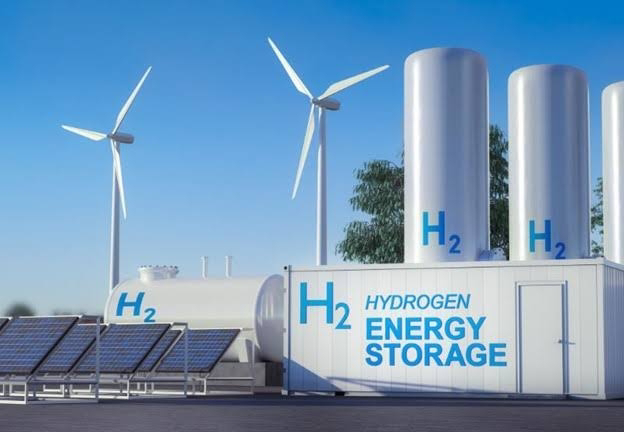Renewable energy storage through hydrogen is gaining attention as a key solution to address the intermittent nature of renewable energy sources like solar and wind. Here's how hydrogen storage contributes to the effective utilization of renewable energy:
1. Excess Energy Utilization:
- During periods of high renewable energy generation, such as sunny or windy days, there is often more energy produced than the grid or local demand requires. Hydrogen storage allows for the capture of this excess energy.
2. Electrolysis Process:
- The excess renewable energy is used to power the electrolysis process, where water (H2O) is split into hydrogen (H2) and oxygen (O2). This process creates green hydrogen when powered by renewable sources, making it an environmentally friendly energy carrier.
3. Energy Storage:
- Hydrogen acts as a storage medium for energy. Unlike batteries, hydrogen storage has the advantage of long-duration storage, allowing for the retention of energy for extended periods.
4. Grid Balancing:
- Stored hydrogen can be used to balance the electricity grid during periods of low renewable energy generation. Hydrogen can be converted back into electricity using fuel cells, providing a flexible and dispatchable energy source.
5. Decoupling Energy Production and Consumption:
- Hydrogen storage enables the decoupling of energy production and consumption. Excess energy generated at one time can be stored and used at a later time, reducing the need for additional backup power sources.
6. Energy Transportation:
- Hydrogen can be transported to areas where renewable energy generation is insufficient. This is particularly useful for regions with varying renewable energy potential, allowing for the distribution of clean energy to areas in need.
7. Industrial Applications:
- Stored hydrogen can be used in various industrial applications, such as providing high-temperature heat for manufacturing processes or serving as a feedstock for the production of chemicals.
8. Hydrogen as a Fuel:
- Hydrogen can be used as a fuel in various sectors, including transportation. Fuel cell vehicles can utilize hydrogen stored during periods of excess renewable energy production, offering a clean alternative to traditional fossil fuels.
9. Energy Security:
- Hydrogen storage enhances energy security by providing a reliable and resilient energy source. It can serve as a backup during times of grid instability or unexpected interruptions in renewable energy generation.
10. Reducing Curtailment:
- Renewable energy projects often face curtailment, where excess energy is wasted because the grid cannot absorb it. Hydrogen storage helps reduce curtailment by storing excess energy for later use.
While hydrogen storage presents a promising solution for renewable energy integration, challenges such as cost, efficiency, and infrastructure development still need to be addressed. Ongoing research and technological advancements are expected to play a crucial role in optimizing the use of hydrogen storage for renewable energy applications.

No comments:
Post a Comment